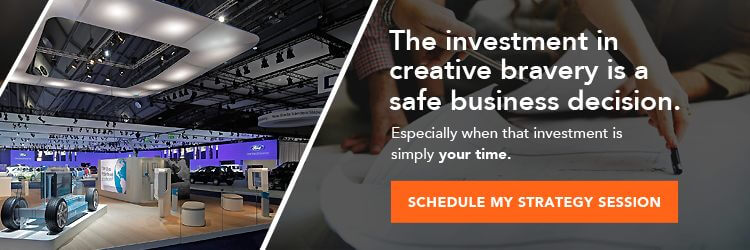Decades ago, when an exhibitor asked for guidance on global exhibiting, advice on things like the meaning of colors in different countries was abundant. The predominance of global brands has rendered most of these warnings obsolete. And yet there are questions that need to be answered by exhibitors venturing outside their domestic markets, questions specific to the show and to the region where the show is held.
Begin your global program by researching the shows or fairs that are appropriate to your market. For each show, ask:
- What is the nature of the show? A large attendance—or a smaller, targeted audience? Tightly focused market or a broad spectrum of market solutions?
- What is the labor environment before and after the show? Are there union jurisdictions in the area? What level of skill should you expect?
- What are the limitations of the venue? For example, how high (or low) are the ceilings? Where are the support pillars?
- What are the possibilities offered by the venue, by the organizer? For instance, are there spaces to expand hospitality?
- What are the expectations of the attendees? Do they want to be able to buy at the show? Are you prepared to sell? Are there government or industry regulations that you must observe?
- What are the expectations of the exhibitors? In addition to the possibilities for the actual exhibit, will exhibitors have access to attendee data? Is there a mechanism available for lead capture? What technology is on offer to facilitate data collection?
- What are the mandates for your brand consistency? Will available materials need to be sourced so that your brand identity is not compromised?
- How far in advance do you need to book your space? Often, the answer is “years,” not months, advance.
- Does it make sense to do a site visit? To inspect the venue? To work face-to-face with hotels and restaurants, particularly if you are bringing a large group to the show?
The show prospectus may give you some of the answers. In the best of all possible worlds, you will be able to obtain a certified audit for the show. Use your industry association contacts to learn what you can about exhibiting at a given show. And above all, work with your suppliers to get complete answers to these questions. Guesswork or cutting corners can be prohibitively expensive.
And speaking of working with your suppliers and regional affiliates, there are a number of areas where their expertise is essential:
- Will there be any holidays during set up? Usually, the holidays don’t occur during the show, but if you come in for an early setup and learn that the entire country is on vacation, you will waste time and money—and probably have a difficult time locating the basics such as food.
- How much can you rely on the organizers to help, and how much should you rely on your partner? Are there hotel rooms available through the show? Organizers in emerging markets don’t always meet the expectations of exhibitors who are used to a buttoned-up, turnkey experience.
- Will you need graphics in any language other than English?
- Should you staff with multilingual reps or hosts? If so, in what languages should they have a facility?
Finally, global exhibiting requires not only business savvy but also cultural sensitivity. Preparing to do business in another culture is important and separates a successful exhibit program from a waste of money, time, and effort. There are many resources that can help you develop this insight no matter where the exhibition is taking place. A successful global exhibiting program includes:
- Acknowledging a cultural context, and understanding the cultural experience and expectations. Understand that businesses in some countries have internal hierarchies that dictate buying patterns.
- Realizing that culturally based service is part of a successful exhibiting experience.
- Taking initiatives based on cultural understanding and the evolution of marketing in a particular country. Again, ask your suppliers for insight into what constitutes a successful program.
- Global exhibiting has introduced new technologies and initiatives to locales that in the past would have frowned on practices like lead collection.
- Studying cultural trends to deliver real value. Learn what makes attendees comfortable—and then incorporate those elements in your exhibit.
- Being aware and respectful of compliance and legal issues that impact exhibiting. These might include industry regulations—medical comes to mind—or perhaps government caveats.
- Providing value beyond borders. Global business is not limited by geography. Prepare for global success.
Do you need help planning your global program? Schedule a free strategy session here.


